
The Bottom Line
Introduction & Drive Details
Capacity is King, they say. We say bleeding-edge performance blended with capacity is what makes for the true King of SSDs. The 4TB Seagate Firecuda 530 we have on the bench today is among the fastest SSDs ever made while at the same time carrying with it the highest capacity ever done for a TLC-based consumer NVMe SSD. It's fast enough that when we factor in capacity, we feel it can be said it's the rightful King of SSDs. At least for today.
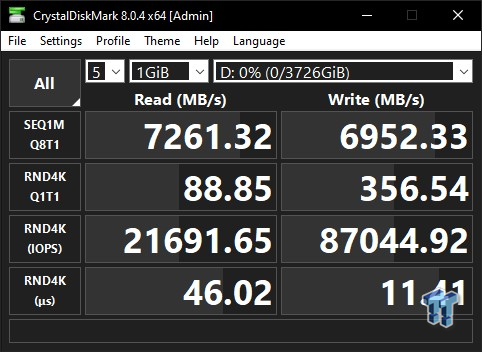
As we have done with our previous FireCuda 530 reviews, we ran a CDM on our AMD system to give maximum possible sequential speeds a quick check. As expected, the 4TB 530 doesn't generate as much sequential throughput as the 2TB model, but it's still what we consider jaw-dropping territory. Sequential throughput of this magnitude can and does generate a substantial amount that does need to be tamed by a heat sink of some sort in certain use case scenarios like, say, sticking one in a PS5 console.
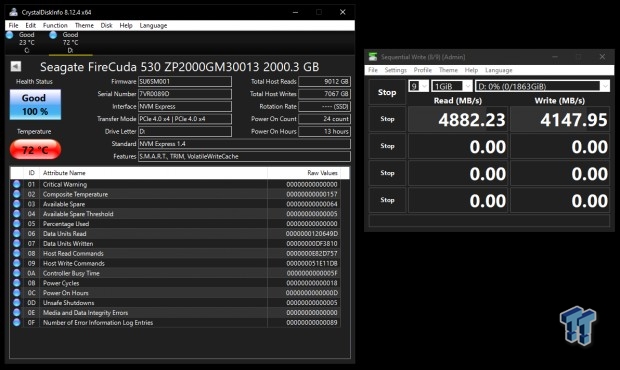
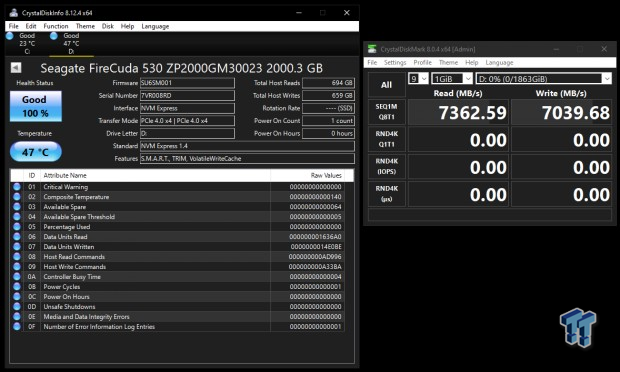
Seagate has got you PS5 enthusiasts covered. They offer the FireCuda 530 with heat sink that meets all aspects of fitting in the expansion slot and effectively cooling the 530 for PlayStation 5 applications. We tested the effectiveness of the totally Boss EK heat sink that's employed on the 530 HS models. In the above screenshots, we have a 2TB FireCuda 530 without heat sink (and no airflow) hitting 72c and throttling back big time as we ran 2x9 iterations of CDM sequential. Then we have the exact same testing with another 2TB FireCuda 530 with heat sink (and no airflow), and the difference is dramatic. We couldn't even get it to hit 50c. Absolutely perfect for the PS5. Wow, EK doing EK things on SSDs; got to love that.
Drive Details
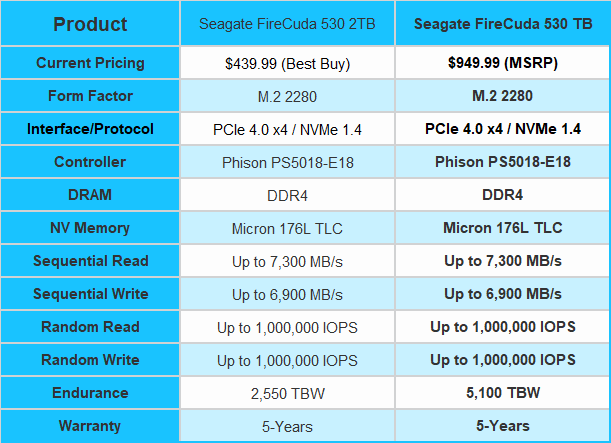
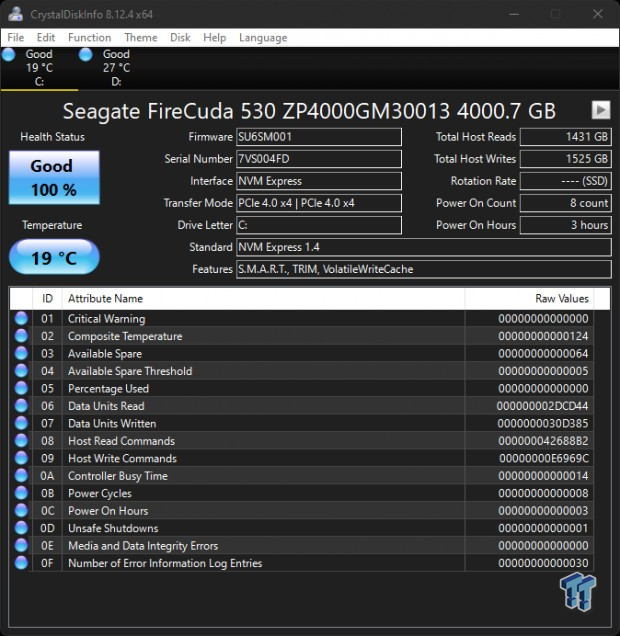
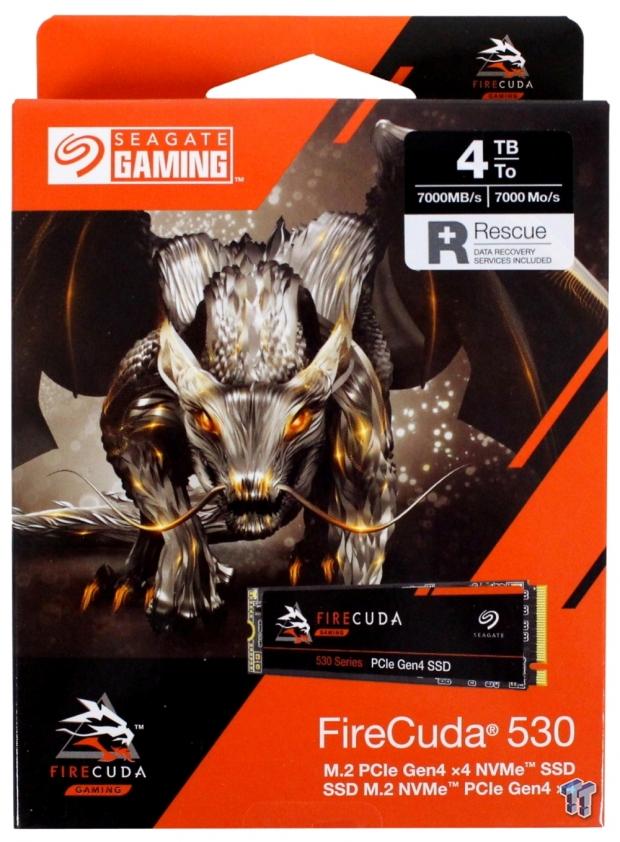
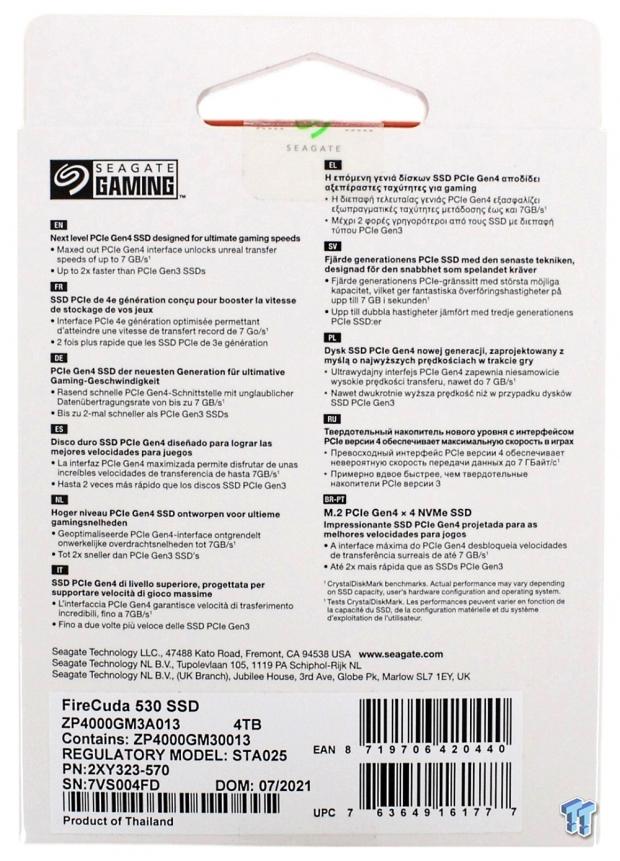
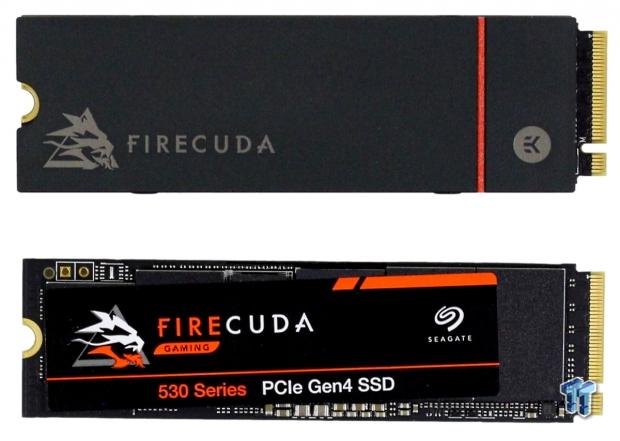
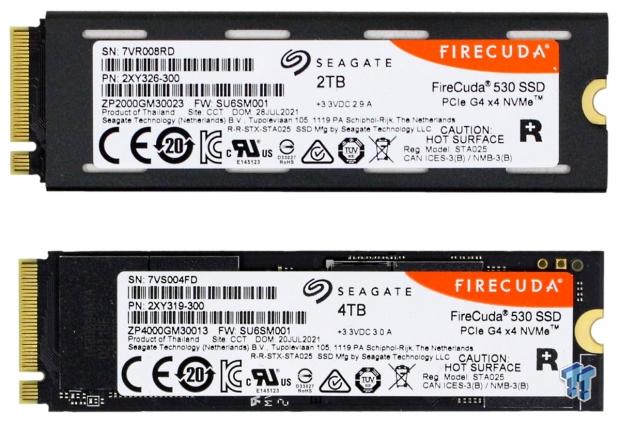
The King of SSDs should be enduring. How about 5.1 petabytes of enduring? Amazing. Even when it gets dethroned one day, it will still have plenty of endurance left in the tank.
Jon's Test System Specifications
- Motherboard: ASUS ROG Maximus XIII HERO - Buy from Amazon
- CPU: Intel Core i9-11900KF - Buy from Amazon
- Cooler: Alphacool Eissturm Hurricane Copper 45 - Buy from Amazon
- RAM: XPG DDR4 D50 Xtreme 5000MHz 16GB (8GB x 2) - Buy from Amazon
- Video Card: Zotac 2080Ti AMP Edition - Buy from Amazon
- Case: PrimoChill's Praxis Wetbench - Buy from Amazon
- Power Supply: Thermaltake Toughpower GF1 1000W 80+ Gold Buy from Amazon
- OS: Microsoft Windows 10 Pro 64-bit Buy from Amazon

Synthetic Benchmarks: CDM, Anvil, ATTO
CrystalDiskMark
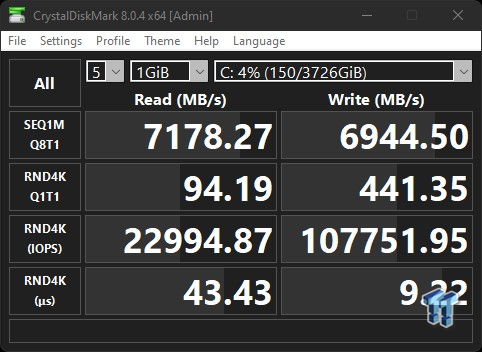
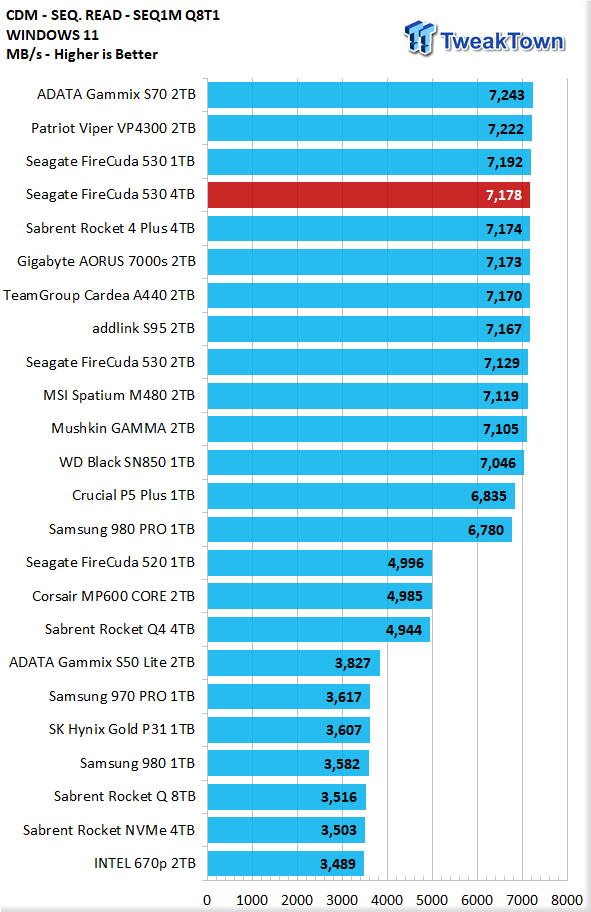
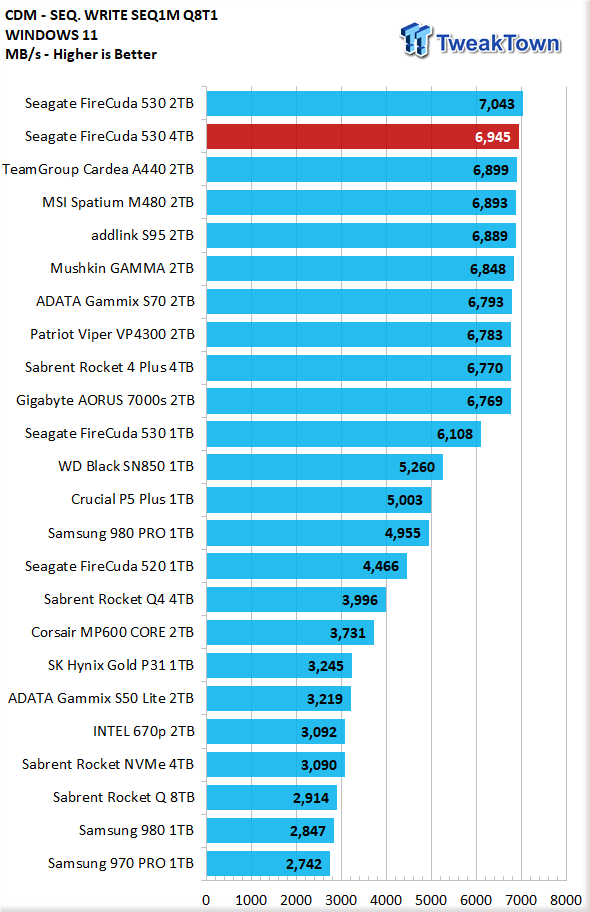
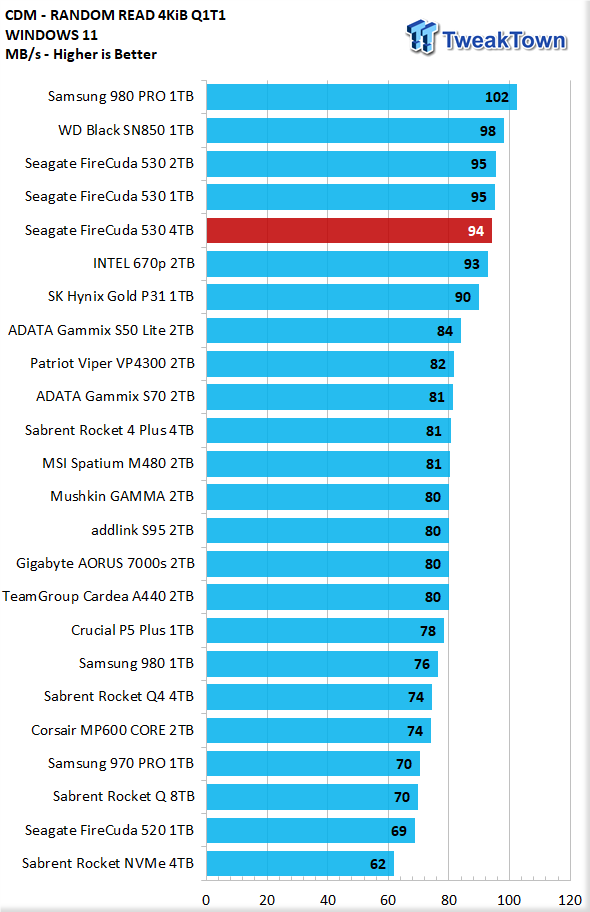
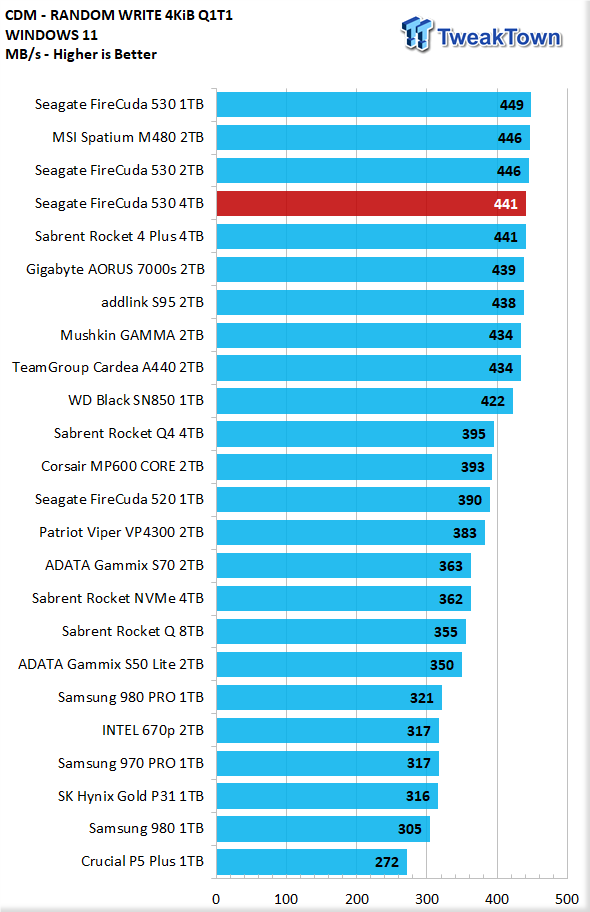
As expected, chart-topping numbers across the board. The 4TB model can't quite catch the sequential write speed of its 2TB sibling but does manage to exceed it when serving data to the host. And with that, we can confirm the throughput crown is owned by one family, the FireCuda 530 family.
Anvil's Storage Utilities
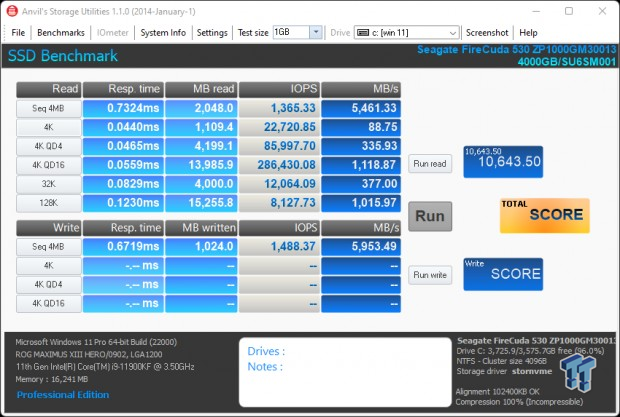
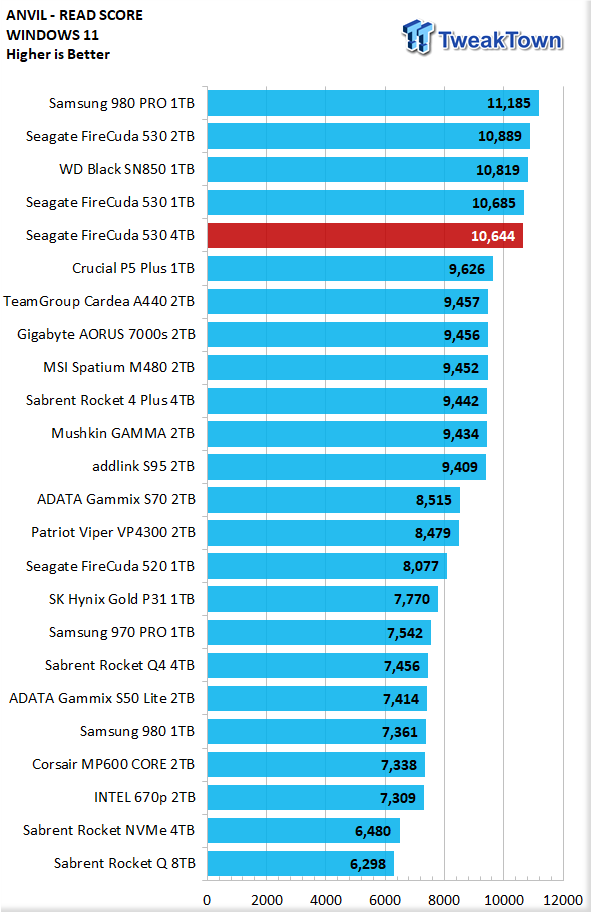
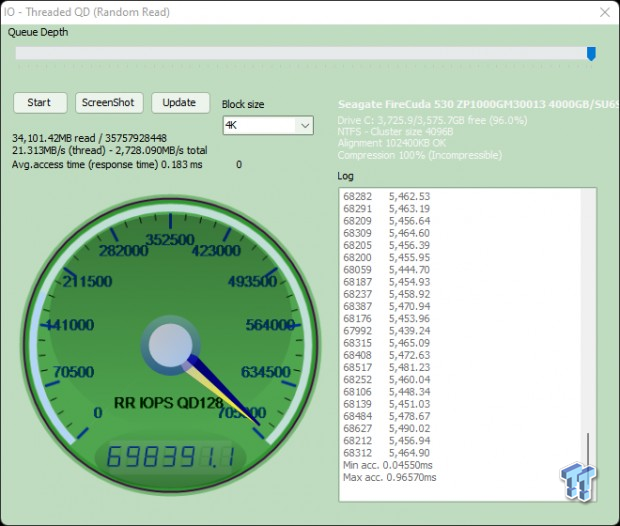
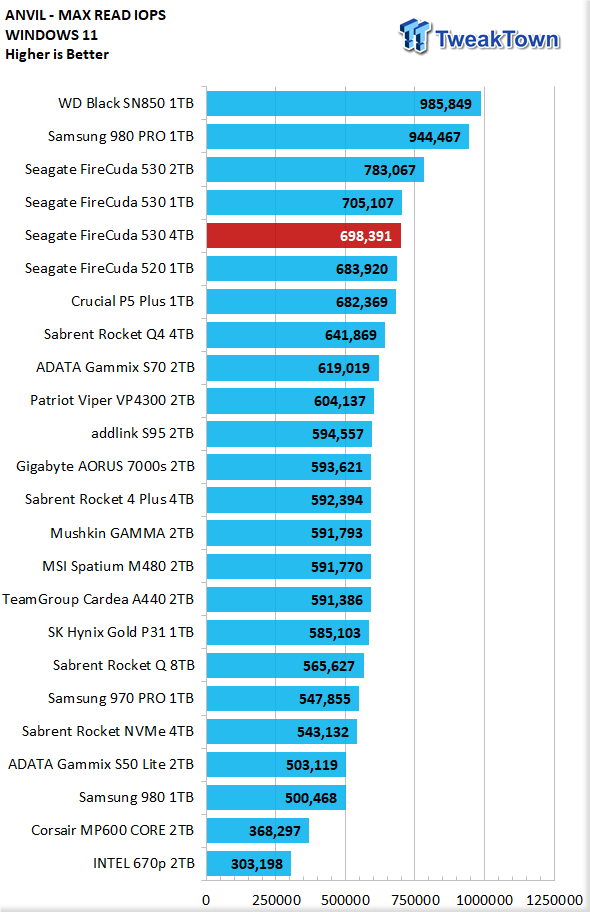
Another massive read score for the FireCuda 530 Series. It's the 4th best we've recorded for any flash-based SSD. Impressive. In terms of Max IOPS, the 4TB model is the slowest of the 530 series due to its different die capacity. The drive is spec'd for up to 1,000,000 random read IOPS which you can see is severely overstated as it always has been for every Phison-based SSD to date. It's just tradition at this point, I guess. No harm, really, because nothing you will ever do will call for anything above 275K IOPS anyway.
ATTO
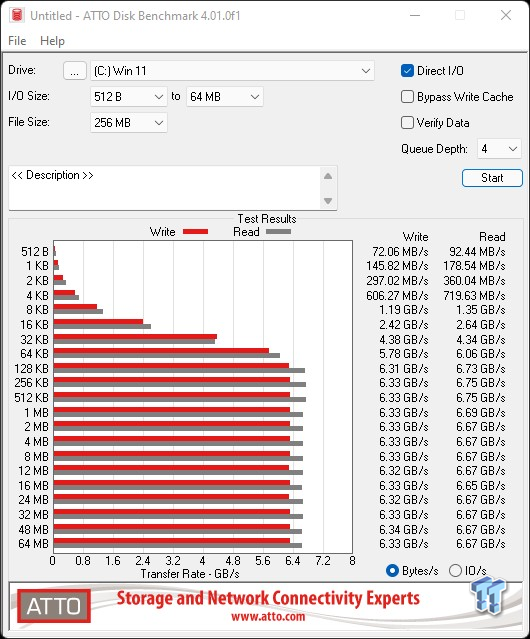
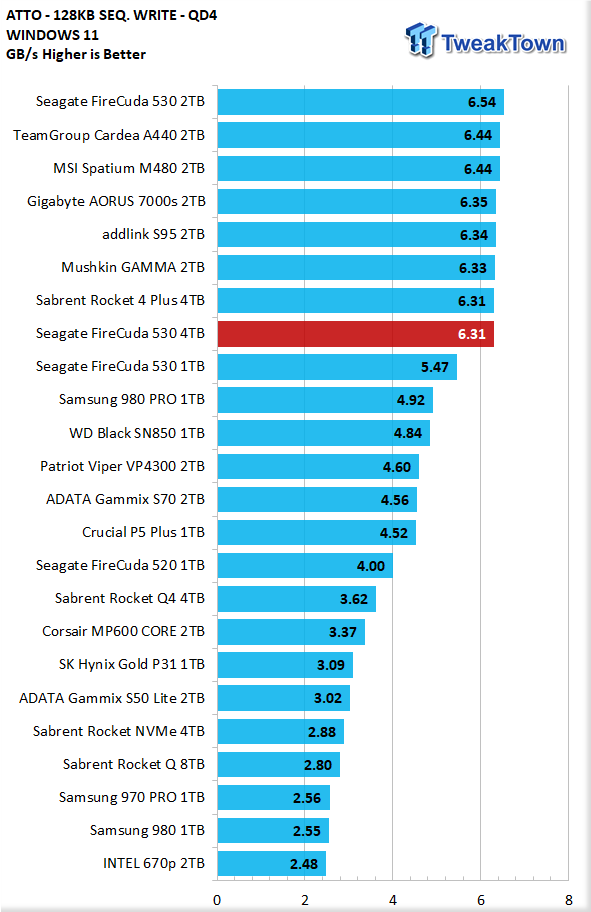
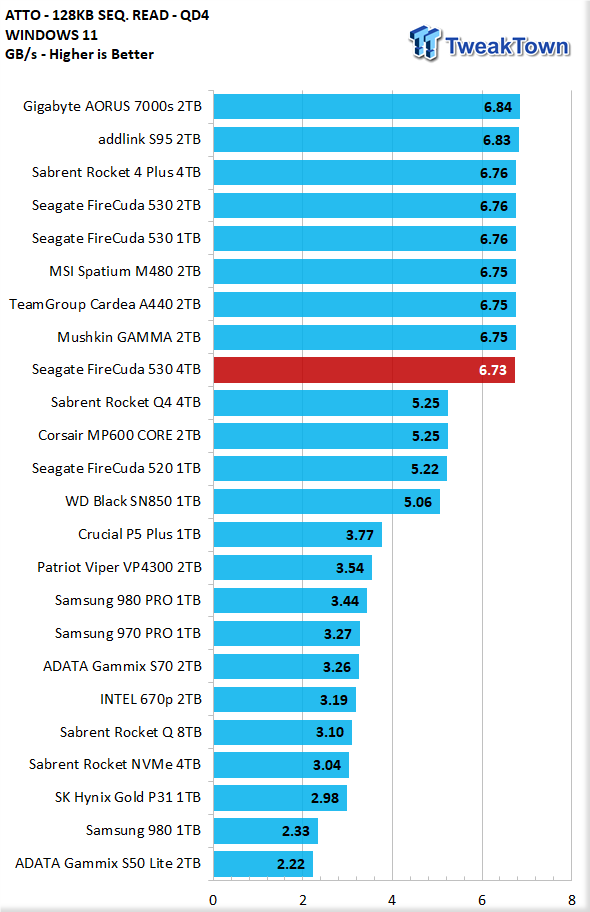
At QD4, the 4TB FireCuda serves up sequential 128K speeds just slightly below those of other E18 controlled SSDs. Nevertheless, it's still up there breathing the same rarified air that only Phison SSDs can get too.
Real-World Testing: Transfers, Gaming, PCM10
Transfer Rates
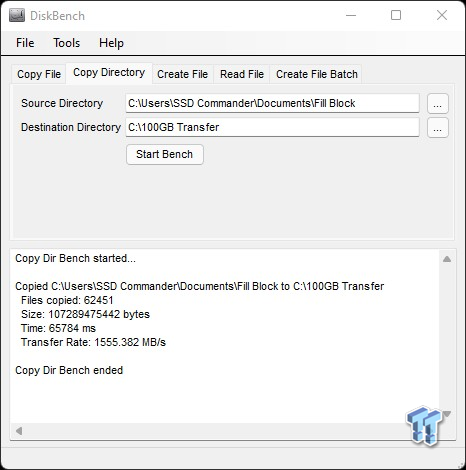
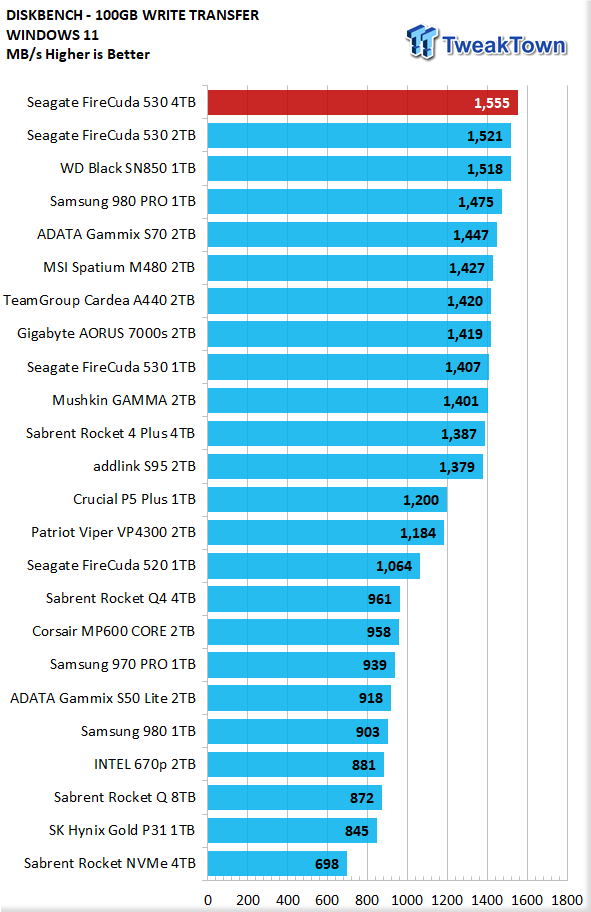
The 4TB FireCuda 530 dishes out a new lab record for this particular hardware/software combination by beating out its generally more powerful 2TB sibling.
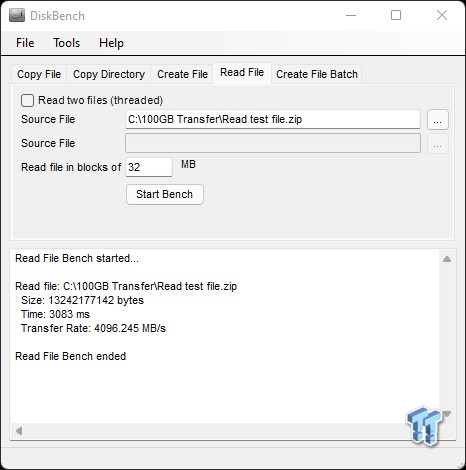
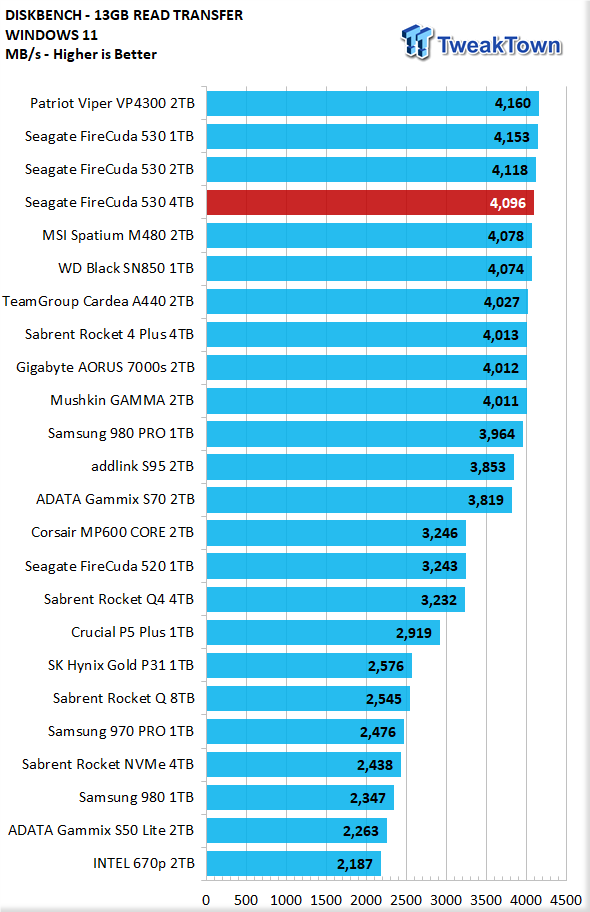
Serving data to the host is something Seagate's FireCuda 530 series does as good as it gets. Impressive.
Game Level Loading
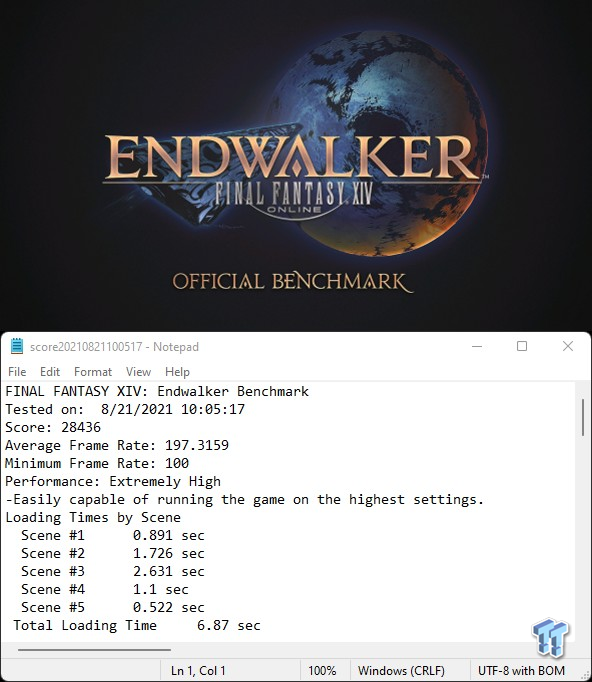
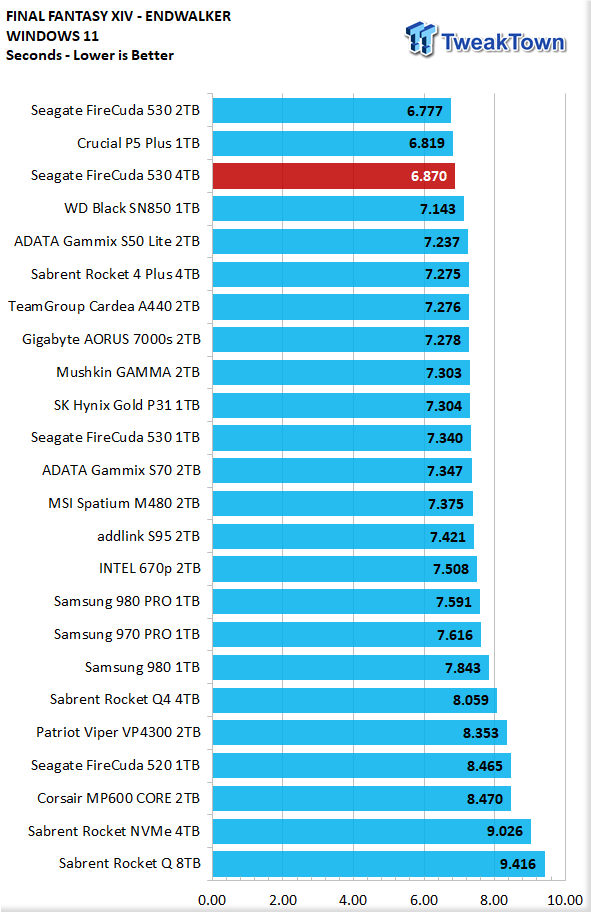
Gaming is a performance metric that matters to the majority of DIY consumers, especially to the enthusiast crowd that TweakTown caters to. As expected, the 4TB FireCuda 530 places where only 176Layer flash arrayed SSDs have been able to go so far.
PCM10 Storage Tests
PCMark 10 Storage Test is the most advanced and most accurate real-world consumer storage test ever made. There are four different tests you can choose from; we run two of them.
The Full System Drive Benchmark and the Quick System Drive Benchmark. The Full System Drive Benchmark writes 204 GB of data over the duration of the test. The Quick System Drive Benchmark writes 23 GB of data over the duration of the test. These tests directly correlate with mainstream user experience.
PCMark 10 Full System Drive Benchmark
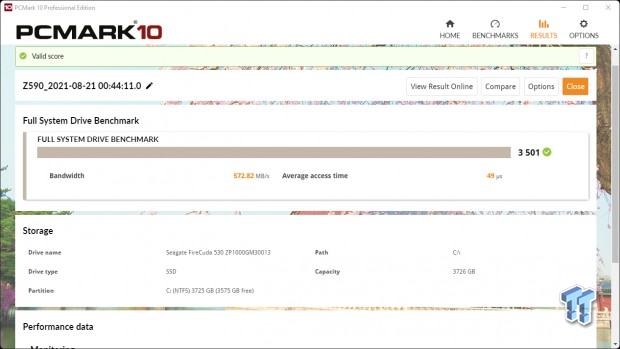
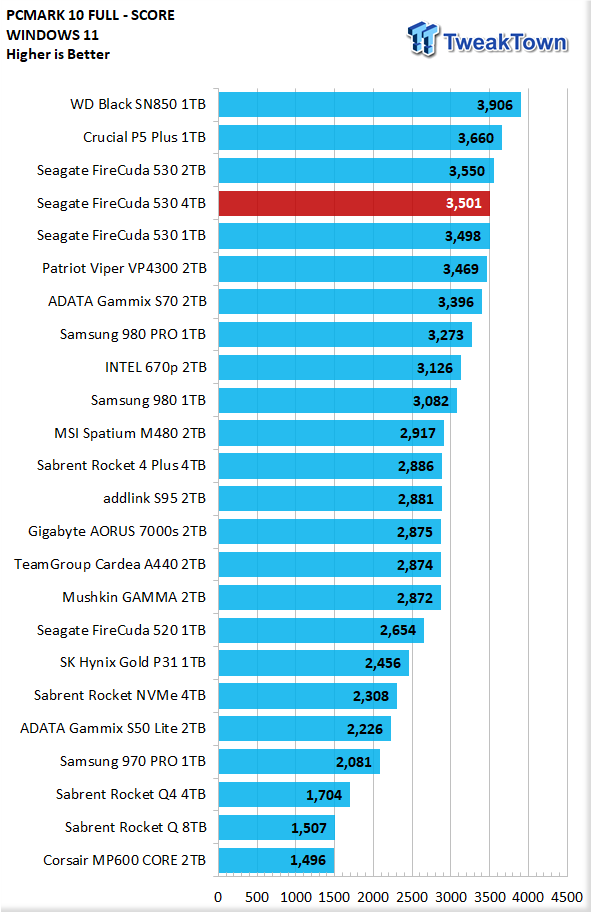
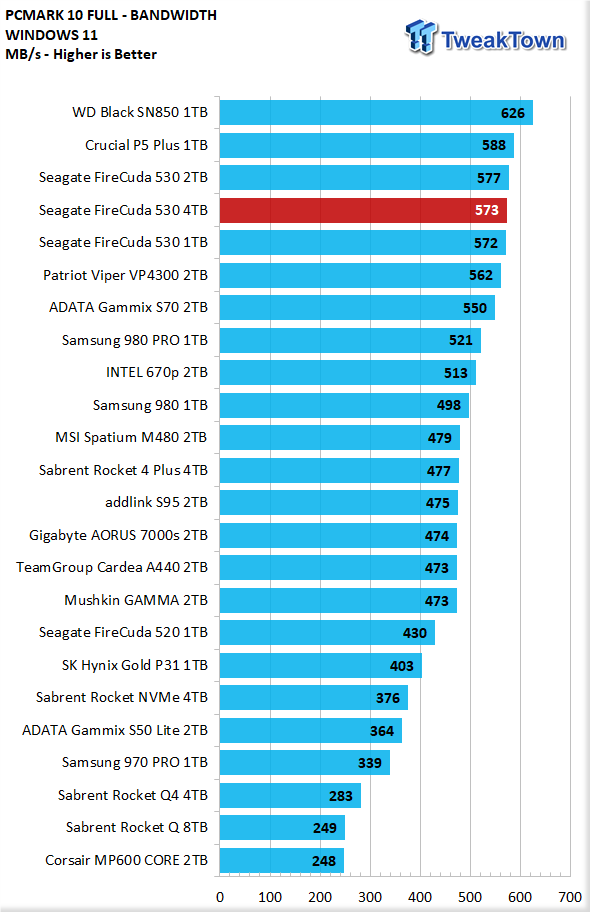
This particular test writes over 204GB data and covers a broad range of common consumer tasks, including booting Windows 10, file transfers, Adobe and Office applications, and startup times for games including Battlefield V, COD Black Ops 4, and Overwatch. Unlike synthetic numbers, this is comprehensive real-world data which is why we use it to rank SSDs in terms of user experience.
Another Elite level performance brought to you courtesy of Seagate's FireCuda 530 series.
PCMark 10 Quick System Drive Benchmark
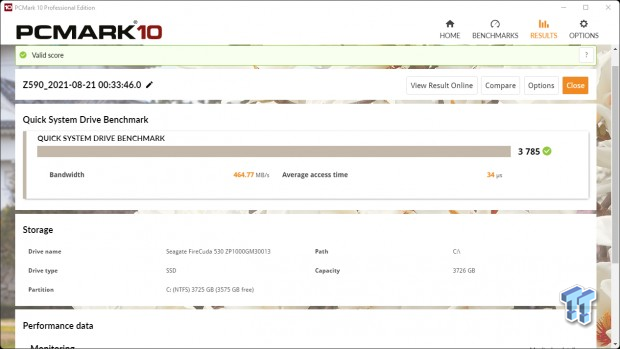
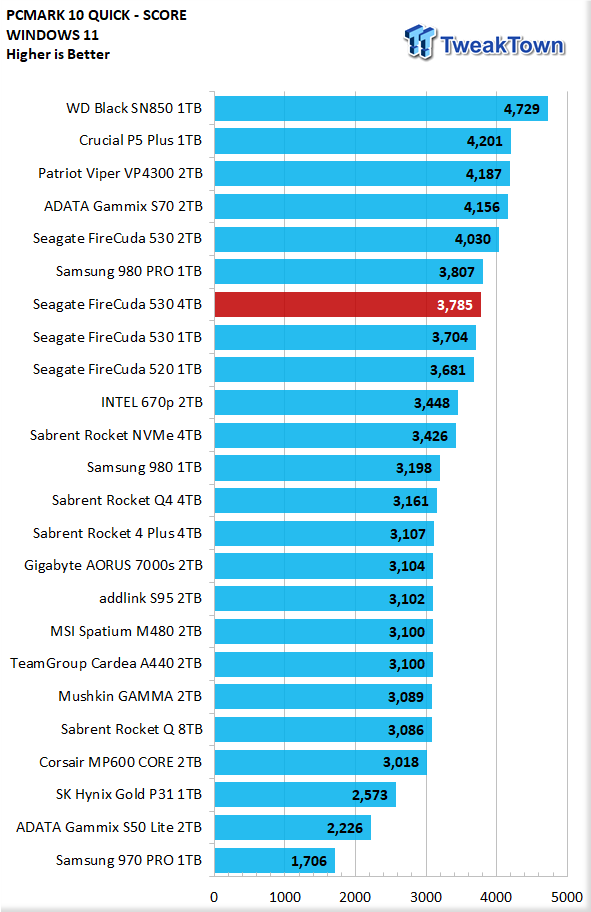
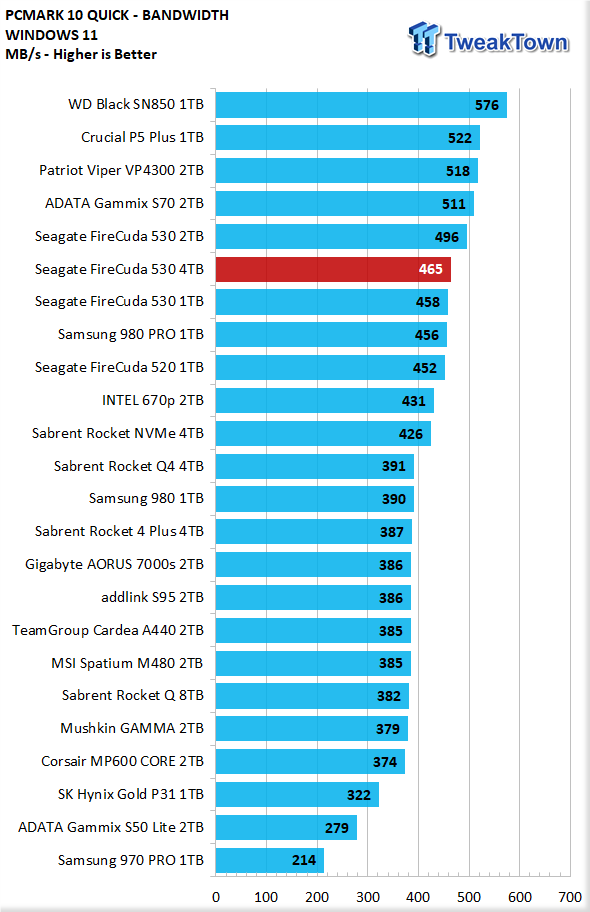
Elite performance where it matters most is what the FireCuda 530 Series is all about. The entire series has earned TweakTown Elite status. Impressive.
Final Thoughts
Unprecedented capacity to performance ratio compels us to declare the 4TB Seagate FireCuda the new King of SSDs. Everything about it is cutting edge. Performance, endurance, and capacity - everything. The only drawback is, of course, the cost of ownership. Do you want to own the King of SSDs? You will need to cough up roughly a thousand bucks. That's a huge chunk of change, to be sure, but it, in our opinion, is worthy of its asking price, all things considered. You can't really wear it out. It can hold as much or more data than any other M.2 TLC device and deliver all that data to the host at speeds of up to 7,300 MB/s.
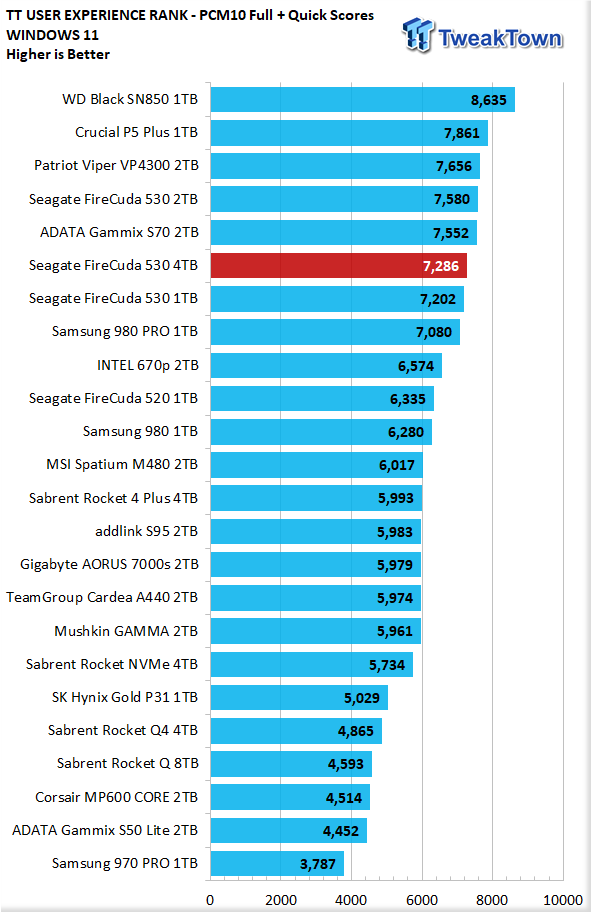
We rank SSDs in terms of overall user experience (performance where it matters most) as expressed by PCMark 10 storage tests. We consider a user experience score of over 7K to verify an SSD as TweakTown Elite. To date, only nine flash-based SSDs have attained this status, and three, yes, three of them are Seagate FireCuda 530's.
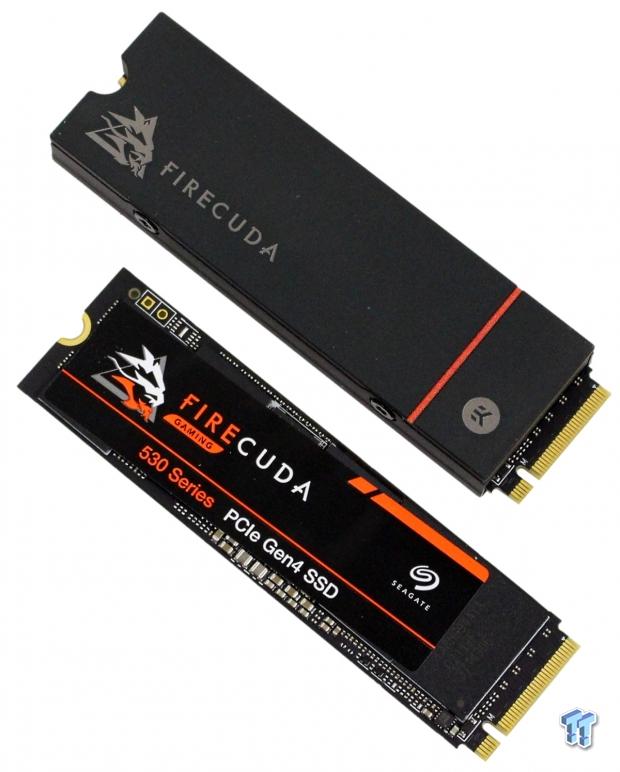
The 4TB FireCuda 530 takes everything that makes the 530 series the throughput and gaming champion and heaps on more of it. A 4TB SSD like the FireCuda is about as future-proof as hardware can be in today's world of rapid technological advancements. It can likely last you a lifetime if called upon to do so. You only live once, and the King of SSDs is out there waiting for you to bring it home.
Pros
- Sequential Speeds
- Gaming
- User Experience
Cons
- None

Performance |
98% |
Quality |
100% |
Features |
100% |
Value |
95% |
Overall |
98% |
Certified TweakTown Elite and crowned King of SSDs. What more could you want?

What's in Jon's PC?
- CPU: AMD Ryzen 7800X 3D
- MOTHERBOARD: GIGABYTE AORUS Master X670E
- RAM: Kingston Fury Renegade 7200MHz 32GB
- GPU: ZOTAC AMP Extreme GeForce RTX 4090
- SSD: Crucial T700 2TB Gen5
- OS: Windows 11 Pro
- COOLER: Lian Li Galahad 360 AIO
- CASE: Lian Li Lancool III
- KEYBOARD: Corsair K65 RGB Mini
- MOUSE: SteelSeries AEROX 5 Wireless
- MONITOR: ASUS ROG Strix PG27AQN 360Hz 1440p ULMB2
Similar Content
Related Tags

